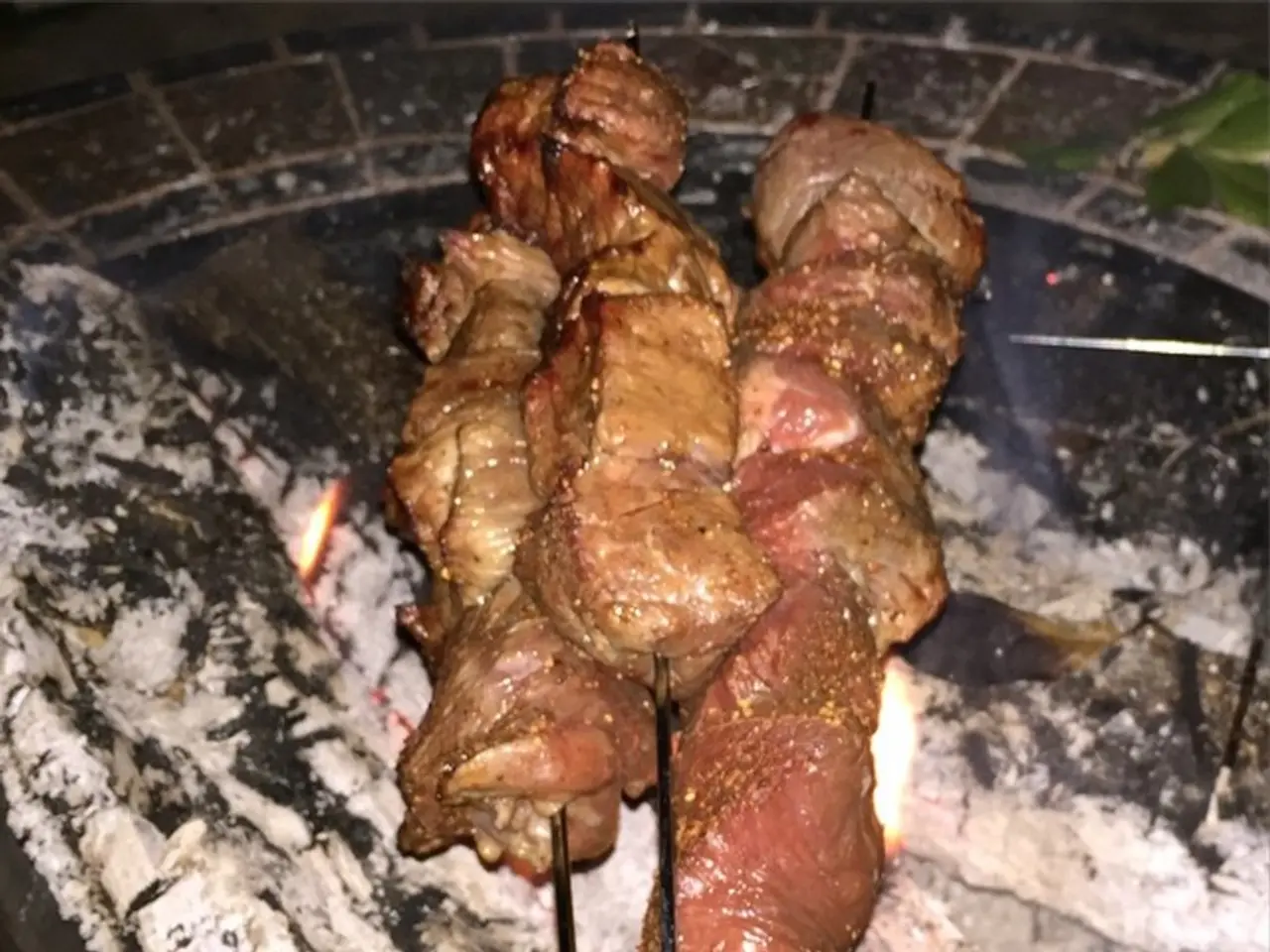Thirty-nine Practical Skills to Minimize Dependence on External Systems
Self-Reliance: Mastering Essential Skills for Modern Survival
In today's fast-paced world, it pays to be self-reliant. Here are 41 practical skills that help you break free from the shackles of grocery stores, the grid, and large corporations, all while embracing the conveniences of modern life.
I'm not talking about forsaking all comforts and diving headfirst into bucolic simplicity. I live in the suburbs, buy my groceries, and frankly, couldn't give a rat's ass about living like Laura Ingalls Wilder on the prairie.
But let's face it, systems fail. Shelves empty, the power goes out, inflation hits hard, and most of us are caught off guard with no backup plan. Self-reliance isn't about prepping for the apocalypse; it's about being prepared for when shit hits the fan.
Prepping doesn't equal living off the land. It's about acquiring a few crucial skills and a willingness to figure things out.
Food: Grow, Source, Preserve
Growing your own food may seem like a daunting task for those with limited space or time, but it's easier than you think.
- Start Small: If you have a windowsill, grow herbs. If you have a patio, try tomatoes in a pot. No need for acres of land or flawless garden beds.
- Go Big in Containers: When space is restrictive, grow what you can in pots, buckets, and hanging planters.
- Join a Community Garden: If space is nonexistent and you yearn for gardening, check your local area for community gardens or even start one yourself.
- Replace Landscaping with Food: Swap out lawns for berry bushes, fruit trees, or edible flowers, saving water and space.
- Compost: Just about anywhere can host a compost pile, worm bin, or other decomposing wonders, providing free fertilizer.
- Hunt and Fish: Stock up on your own dinner by learning to hunt and fish.
- Butcher: Learn to process your own meat to assure quality and origin.
- Preserve Food: Canning and pickling are old-school techniques that make fresh food last.
- Forage: Free food abounds in your backyard; learn to identify safe plants and fruits.
- Bake Bread: Make the most of flour and yeast, as they're staples for surviving tough times.
Water: Find, Store, Optimize
Water security quickly becomes a concern when taps run dry. Be prepared with these water-related skills.
- Store Emergency Water: Stockpile bottled water or jugs for emergency use; even canning water is simple.
- Collect Rainwater: Harvest rain for drinking and irrigation, provided it's allowed in your area.
- Filter Water: Know how to filter water through a variety of methods, like purification tablets and filters.
- Purify Water: Use water purification solutions when you lack access to filtered water.
Energy & Heating: Prepare for Grid Failure
Power outages can happen at any time, leaving you in the dark. Be ready for these instances with these energy and heating tips.
- Lighting Alternatives: Stock up on candles, oil lamps, solar lanterns, and other non-electric lighting solutions.
- Backup Heating: Find an alternative heat source, such as a propane heater or wood stove, to keep warm during outages.
- Portable Power: Keep a power bank on hand to charge mobile devices during emergencies.
Practical Skills for Self-Reliant Living
So, you've got food, water, and heat covered. Now flesh out your self-reliant skillset with these handy tips.
- Basic Sewing: Knowing how to fix clothes will stand you in good stead during rough times.
- Making and Repairing Food: Learn to create simple meals using limited resources.
- Car Maintenance: Mastering basic car repairs will keep you mobile.
- First Aid: Nurture your survival instinct with essential first-aid knowledge.
- Bartering: Discover the art of bartering and trading resources to get what you need.
- Staying in Shape: Grit and physical fitness will help you weather challenges.
Old-School Skills Worth Reviving
Ancient skills have stood the test of time for a reason. Embrace these timeless techniques for a more self-reliant lifestyle.
- Starting a Fire: Knowing how to ignite a flame withoutmatches or lighters is crucial when other methods fail.
- Cooking without Electricity: Master outdoor cookery options, such as woodstoves, camp stoves, grills, and open fires.
- Making Candles: Handcraft wax candles as a viable light source when electricity is unavailable.
- Using Rechargeable Batteries: Stock up on batteries and ensure that you have a means of recharging them.
- Living without Running Water: Conserve water by reducing usage and relying on alternative sources during emergencies.
- Fermentation: Practice the lost art of fermenting fruits and vegetables for tasty, nutritious food.
- Keeping Bees: Raise bees for honey and beeswax, two valuable resources.
- Preserving Food with Salt: Salt-curing meat and vegetables is an ancient method for lengthening food storage.
Simple Skills for Greater Independence
These everyday skills can help you live more independently and reduce your reliance on modern conveniences.
- Mending and Repairing: Instead of replacing broken items, learn to mend and repair them to maintain functionality and longevity.
- Reading More, Scrolling Less: Keep informed with old-school information sources like books, newspapers, and magazines.
- Navigating Without GPS: Hone your old-school map-reading and compass skills to find your way.
- Walking More: Reduce dependence on vehicles by walking more. Lower your carbon footprint and get a bit of exercise.
- Building with Your Hands: Develop construction skills like carpentry, plumbing, and electrical work.
- Owning Less Junk: Minimize clutter and streamline your life by paring down material possessions.
- Backup for Lost Internet: Create digital copies of important documents and print maps and instructions for reference during disasters.
- Energy Efficiency: Save energy and reduce expenditures with small changes like weather-stripping your home or using energy-efficient appliances.
- Herbal Remedies: Learn simple remedies using natural herbs and plants for basic healthcare.
- Identifying and Using Different Types of Wood: Knowing what wood burns well will help you stay warm during emergencies.
The takeaway? You don't need a farm to be self-reliant, just the willingness to learn and grow. Start small, master one skill, then move on to the next. And remember, it's about preparedness, not paranoia.
For more practical self-reliance tips, follow along at:- Facebook: @the Rustic Elk- Instagram: @TheRusticElk
Additional Resources:* How to Eat Well Without Completely Relying on the Grocery Store* How to Light Your Home Without Electricity (Practical Off-Grid Lighting That Doesn't Suck)
- To further extend the shelf life of fresh food, consider learning the ancient art of fermentation, a key skill in homesteading and self-reliance.
- As part of embracing self-sufficiency, explore the practice of canning and pickling, rich traditions in food-and-drink preservation.
- To round off your self-reliant lifestyle, consider taking up beekeeping as an addition to your home-and-garden skills, yielding valuable honey and beeswax.




